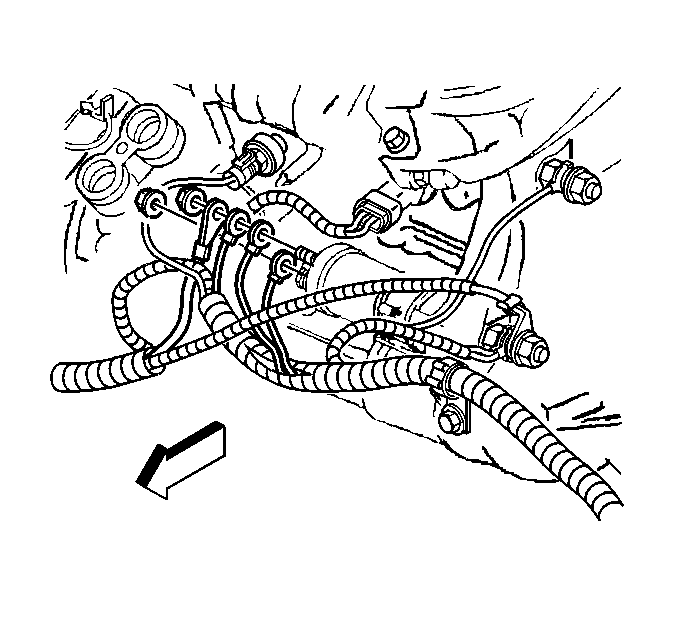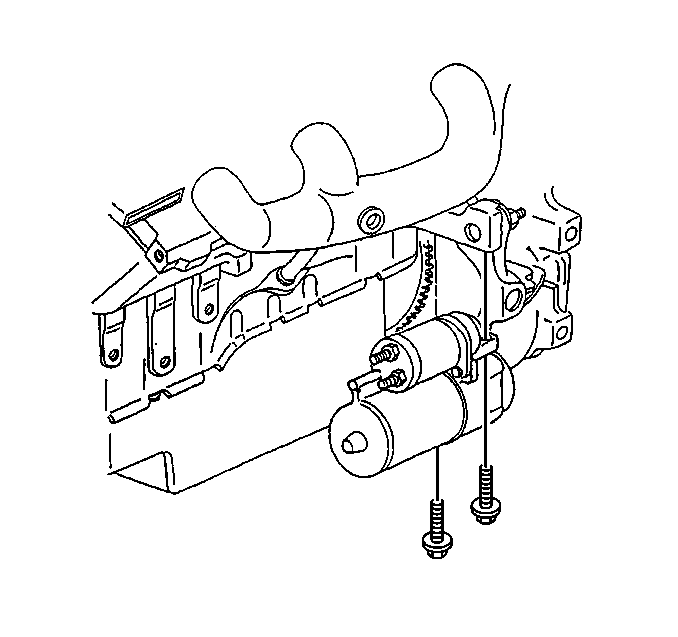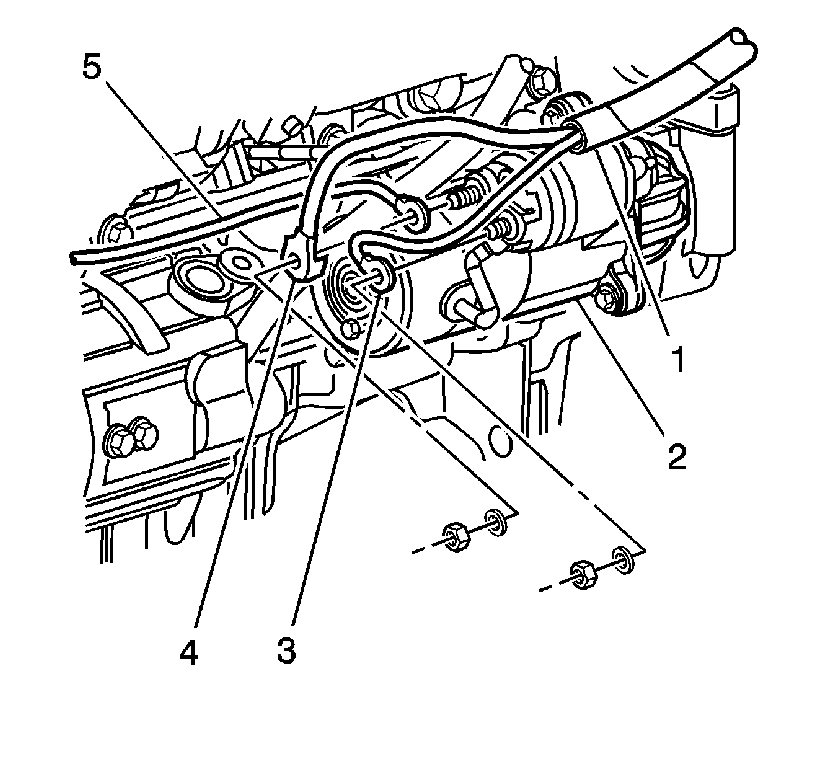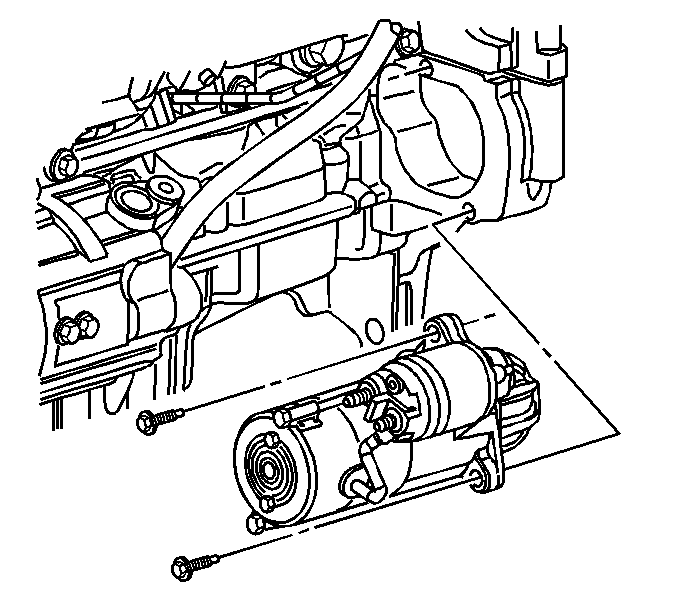Starter Replacement 3.4L
Removal Procedure
- Disconnect the negative battery cable. Refer to Battery Negative Cable Disconnection and Connection .
- Raise vehicle. Refer to Lifting and Jacking the Vehicle in General Information.
- Remove the flywheel inspection cover bolts.
- Remove the flywheel inspection cover.
- Remove the electrical connections from the starter motor.
- Remove the starter motor mounting bolts.
- Remove the starter motor.


Installation Procedure
- Install the starter motor to the engine.
- Install the starter motor mounting bolts.
- Install the electrical connection to the battery terminal on the solenoid.
- Install the electrical connections to the S terminal on the solenoid.
- Install the flywheel inspection cover.
- Install the flywheel inspection cover bolts.
- Lower vehicle.
- Connect the negative battery cable. Refer to Battery Negative Cable Disconnection and Connection .
Notice: Before installing the starter motor to the engine, tighten the nut next to the cap on the solenoid BAT terminal. If this terminal is not tight in the solenoid cap, the cap may be damaged during installation of electrical connections and cause the starter motor to fail later.

Notice: Use the correct fastener in the correct location. Replacement fasteners must be the correct part number for that application. Fasteners requiring replacement or fasteners requiring the use of thread locking compound or sealant are identified in the service procedure. Do not use paints, lubricants, or corrosion inhibitors on fasteners or fastener joint surfaces unless specified. These coatings affect fastener torque and joint clamping force and may damage the fastener. Use the correct tightening sequence and specifications when installing fasteners in order to avoid damage to parts and systems.
Tighten
Tighten the bolts to 40 N·m (30 lb ft).

Tighten
Tighten the battery terminal nut to 17 N·m (13 lb ft).
Tighten
Tighten solenoid S terminal nut to 3 N·m (27 lb in).
Tighten
Tighten the flywheel inspection cover bolts to 10 N·m (89 lb in).
Starter Replacement 2.2L (L61)
Removal Procedure
- Disconnect the negative battery cable. Refer to Battery Negative Cable Disconnection and Connection .
- Raise and support the vehicle. Refer to Lifting and Jacking the Vehicle in General Information.
- Disconnect the electrical connectors (3,4,5) from the starter.
- Remove the starter bolts.
- Remove the starter.


Installation Procedure
- Install the starter.
- Install the starter bolts.
- Connect the electrical connectors (4,5) to the starter.
- Connect the S terminal connector (3) to the starter.
- Lower the vehicle.
- Connect the negative battery cable. Refer to Battery Negative Cable Disconnection and Connection .

Notice: Use the correct fastener in the correct location. Replacement fasteners must be the correct part number for that application. Fasteners requiring replacement or fasteners requiring the use of thread locking compound or sealant are identified in the service procedure. Do not use paints, lubricants, or corrosion inhibitors on fasteners or fastener joint surfaces unless specified. These coatings affect fastener torque and joint clamping force and may damage the fastener. Use the correct tightening sequence and specifications when installing fasteners in order to avoid damage to parts and systems.
Tighten
Tighten the starter bolts to 40 N·m (30 lb ft).

Tighten
Tighten the battery terminal nut to 17 N·m (13 lb ft).
Tighten
Tighten the battery terminal nut to 3 N·m (27 lb in).
